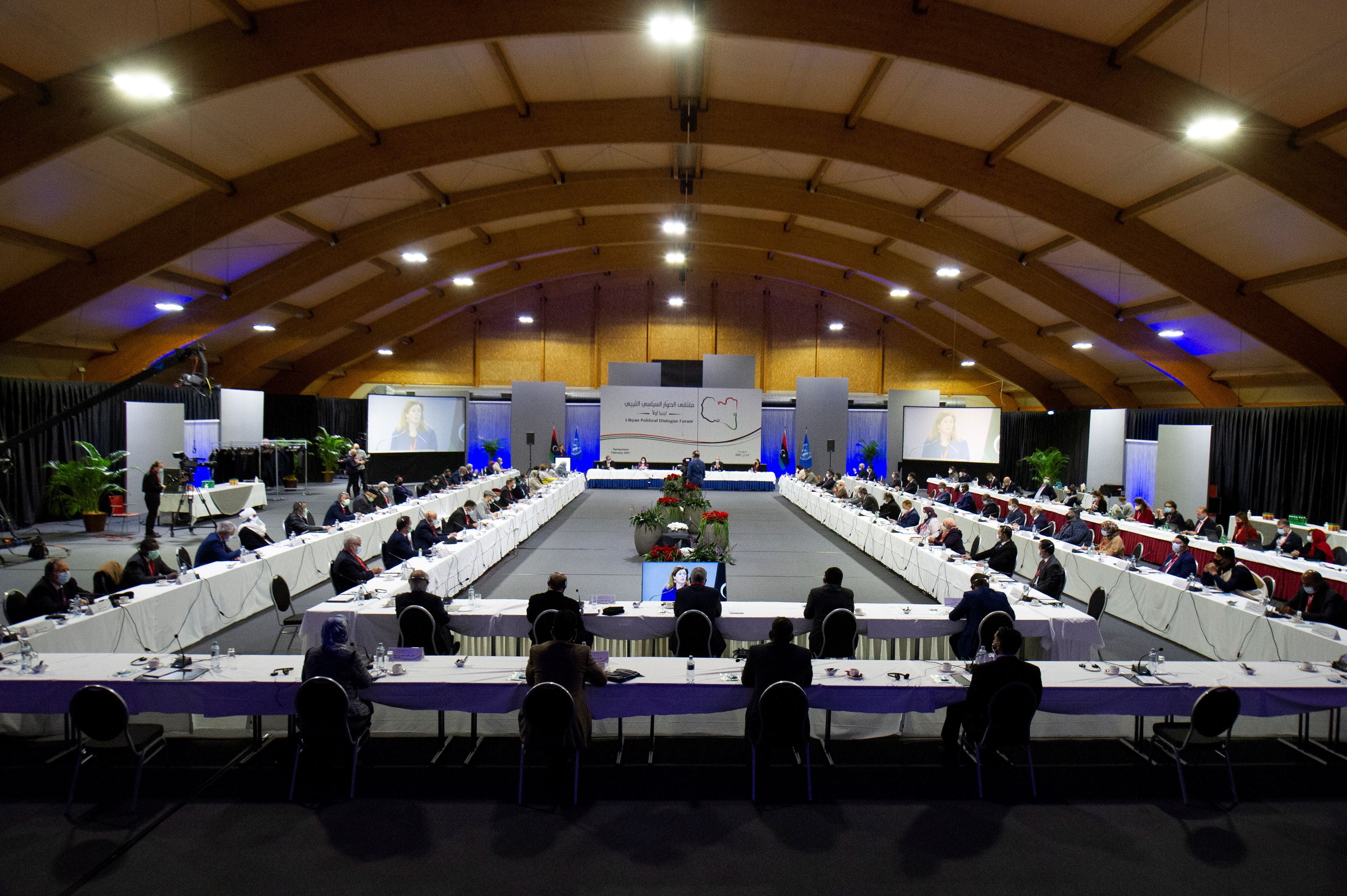Libya conflict: Expectations low as Geneva talks on forming new government begin
Libya has been in a state of civil conflict for nearly 10 years with little progress made in diplomatic talks

Your support helps us to tell the story
From reproductive rights to climate change to Big Tech, The Independent is on the ground when the story is developing. Whether it's investigating the financials of Elon Musk's pro-Trump PAC or producing our latest documentary, 'The A Word', which shines a light on the American women fighting for reproductive rights, we know how important it is to parse out the facts from the messaging.
At such a critical moment in US history, we need reporters on the ground. Your donation allows us to keep sending journalists to speak to both sides of the story.
The Independent is trusted by Americans across the entire political spectrum. And unlike many other quality news outlets, we choose not to lock Americans out of our reporting and analysis with paywalls. We believe quality journalism should be available to everyone, paid for by those who can afford it.
Your support makes all the difference.The latest in a series of halting attempts to stitch together a unified Libyan government got underway near Geneva on Monday under the auspices of the United Nations and the nervous watch of world powers.
The 74 delegates culled from various factions within Libya’s polity stood together for the Libyan national anthem just before they launched the process to elect an interim prime minister and three members of a presidential council to lead the country until elections, scheduled for 24 December.
Libya has been in a state of civil conflict for nearly 10 years, after a Nato-backed rebel uprising toppled the country’s long-ruling dictator, Muammar Gaddafi, and initiated a new period of insecurity and political uncertainty. Two rival governments backed by various foreign powers in the east and the west now vie for control while violent extremist groups lurk in the background, seeking to exploit the chaos.
UN special envoy Stephanie Williams, who has assembled the process named the Libyan Political Dialogue Forum, called for Libyans to set aside personal ambitions and seek the interests of the nation.
“This project is not about power sharing or dividing the cake,” she told the assembled. “Rather, it is to form a temporary government composed of patriots who agree to shoulder and share the responsibility to put Libyan sovereignty and the security, prosperity and welfare of the Libyan people above narrow interests and far from the spectre of foreign interference.”
Delegates on Monday wore surgical masks while sitting at banquet tables and watched the contenders on video. Some 21 contenders are vying to serve as prime minister and 24 on the presidency council, with the vote expected later this week. Analysts say western diplomats have their favourites to serve as transitional prime minister, including Mohammed Muin Mansour al-Kikhia, an elderly scholar, Fadel Lamen, a technocrat.
The candidates for the offices spoke in vague terms about their aims.
“Libya has experienced a very hard crisis that has threatened its integrity,” said one candidate.
“I have applied for this position because I am convinced the act of engagement is vital,” said another. “I am well aware of the principles of good government.”
Another said, “We are going to promote coexistence among Libyans and ensure that democracy prevails.”
Since the 2011 uprising, there have been several attempts at bringing Libyans together to form a unified government. The chief impediments have been the clashing ambitions of two foreign-backed forces.
In the west of the country, is the Tripoli-based UN-recognised Government of National Accord, which includes the remnants of Islamist armed groups who fought against Gaddafi and is backed by Turkey.
In the east is Khalifa Haftar – a former Libyan army commander backed by the United Arab Emirates – Egypt and Russia, who has sought to conquer the country and establish himself as an autocratic ruler.
Many doubt the two heavily armed camps will easily recognise civilian leaders picked in Geneva, or put their weapons under their authority.
“The complicated voting process could easily trigger further disputes,” the Crisis Group, a conflict resolution and advocacy group, said in a note last month. “Moreover, rival Libyan factions disagree on who should lead the country and are only paying lip service to transparency in voting.”
One noted Libya expert described the Geneva forum as an attempt to forge an “intra-elite deal” that lacked public legitimacy. “Spare us the fanfare and laughable propaganda about the process being inclusive or democratic,” wrote Emadeddin Badi, an adviser to the Geneva Centre for Security Sector Governance, in a Tweet.

Join our commenting forum
Join thought-provoking conversations, follow other Independent readers and see their replies
Comments